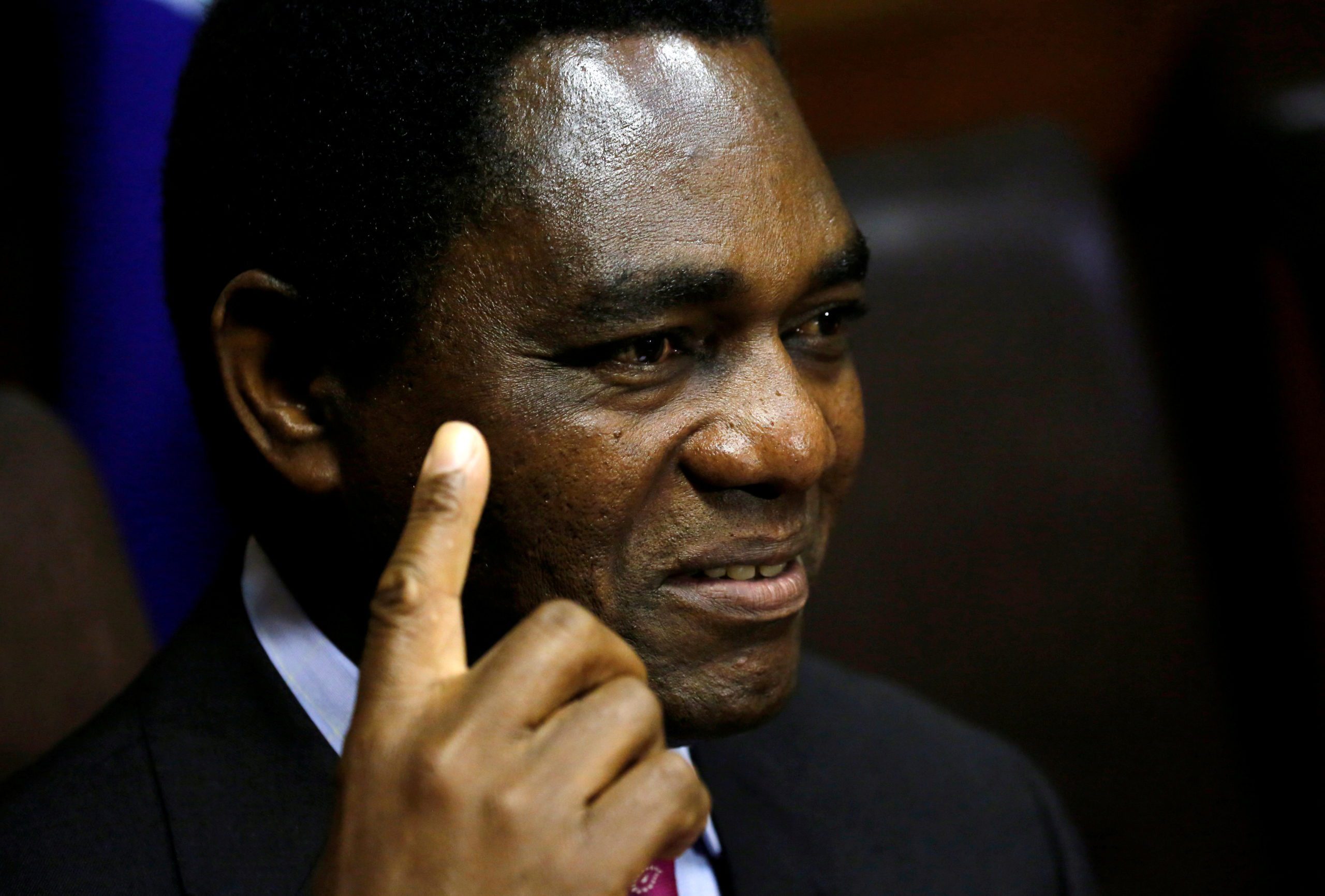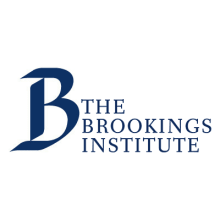
Zambian opposition leader Hichilema wins presidential election
On Monday, Zambia’s electoral commission declared opposition leader Hakainde Hichilema the winner of the southern African nation’s recent presidential election. Hichilema garnered 2.8 million votes, or 50.1 percent of the total, narrowly eclipsing the 50 percent mark needed to win without recourse to a second round. Addressing the nation on Monday, the current president, Edgar Lungu, announced that he would “comply with the constitutional provisions for a peaceful transfer of power.” On July 14, Lungu had criticized the elections as “not free or fair,” but he ultimately earned only 1.8 million votes, a sum that the Financial Times suggests was insufficient to support a legal challenge to the result.
Since the election was called, the value of the kwacha has risen nearly 11 percent against the U.S. dollar. The prices of Zambia’s defaulted U.S. dollar-denominated bonds have also risen. Now, Hichilema will try to navigate Zambia out of its current debt crisis, which has it paying 30 to 40 percent of its revenue on interest payments after becoming the first African country during the pandemic to default on its obligations.
The Taliban’s takeover in Afghanistan will likely have implications for Africa
According to Deutsche Welle (DW), the Taliban’s recent takeover of Afghanistan has heightened worries that extremist groups in Africa will be emboldened by that victory. In fact, in a recent radio interview, Kwesi Aning, director of the faculty of academic affairs and research at the Kofi Annan International Peacekeeping Training Centre in Ghana, warned that the events in Afghanistan “can potentially put all of us in Africa and the Sahel at risk.” DW notes that many Islamic militant groups in the region have an affiliation to al-Qaeda, which was formerly based in Afghanistan.
Recent years have seen surges in extremist activities across the continent despite national government efforts to stamp out such activities and the presence of thousands of U.N. troops in extremist hot spots. In fact, Nigerian President Muhammadu Buhari suggested this week that the war on terror is not over but is moving to Africa. Nigeria itself has been fighting Boko Haram since 2009 and that conflict has spread to areas in Cameroon, Chad, and Niger. Just earlier this month, in northern Burkina Faso, suspected extremists ambushed a government convoy, killing 30 civilians and 17 soldiers. Other extremist groups in Africa include al-Shabaab in Somalia, Jama’a Nusrat ul-Islam wa al-Muslimin (JNIM) in the Sahel, and the Islamic State West Africa Province (ISWAP).
Related Content
The Taliban’s resumption of power in Afghanistan comes after the U.S. withdrawal from the region after 20 years of military presence and has raised questions over other foreign military pullouts in many African hot spots. For example, in July of this year, France announced that it will reduce its military presence in the Sahel, withdrawing over 2,000 troops from the region. Some experts, including Ryan Cummings, a senior associate at the Center for Strategic and International Studies, warn that France should now reconsider its decision to avoid a potential repeat of the Afghanistan scenario.
In related news, Uganda has agreed to take 2,000 Afghan refugees at the request of the United States. Uganda’s camp Bibi Bidi is the world’s largest refugee camp, and Uganda alone currently hosts about 1.4 million refugees escaping conflict. Afghan refugees will be housed temporarily in Uganda until relocated by the U.S., but, at this time, there is not a set date for when the refugees will be moved.
Vaccine inequity; confirmed case of Marburg virus in Guinea; Ebola in Côte d’Ivoire; cholera in Nigeria
On Wednesday, health officials in the U.S. announced plans to begin rolling out COVID-19 booster shots in October to all U.S. citizens. In response, Africa director for the World Health Organization (WHO), Matshidiso Moeti, criticized the decision, stating that such actions “make a mockery of vaccine equity” since wealthy countries have, on average, distributed more than 103 vaccine doses per 100 people, while in Africa only six doses have been distributed per 100 people. In other words, less than 2 percent of Africa’s population is fully vaccinated.
Indeed, vaccine access in the region remains difficult as well as controversial. While the region has demonstrated that it has the capability to mass produce the Johnson & Johnson (J&J) vaccines through manufacturers like Aspen in South Africa, many of those doses have been exported to Europe. In fact, as The New York Times reported this week, South Africa waived the right to ban vaccine exports from the country, sparking outrage from health activists like Fatima Hassan of the Health Justice Initiative, who called the decision to export the vaccines “scandalous, immoral, and unconstitutional.” While wealthy countries have promised to donate shots through the COVAX program, most of them will not be delivered until next year.
Meanwhile, as Guinea deals with its third COVID-19 wave, on July 25, doctors confirmed West Africa’s first-ever case of Marburg virus, two months after the country declared a new outbreak of the Ebola virus. Guinean health officials continue to monitor 172 people who were in contact with Marburg patient zero, who died on August 2. The Marburg virus, which is in the same family as Ebola, causes symptoms similar to Ebola and is transmitted between humans through bodily fluids. The government of Guinea, its neighbors, and the WHO are using the control system developed within the country to deal with Ebola in an attempt to stop the spread. In related news, neighboring Côte d’Ivoire declared its first case of Ebola in 27 years this week. The patient had traveled from Guinea last week and is currently being treated in intensive care.
Also in West Africa, Nigeria is currently responding to a cholera outbreak with more than 30,000 cases and 800 reported deaths this year. The disease is waterborne and is spread by poor access to clean water, open defecation, poor sanitation, and other hygiene issues, according to the Nigeria Centre for Disease Control (NCDC). The NCDC instructs Nigerians to only drink or use water that is boiled and stored safely to prevent infections.


